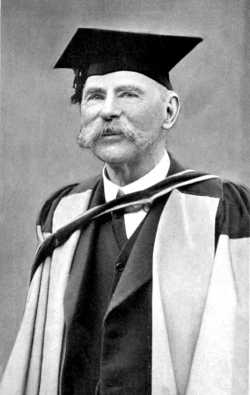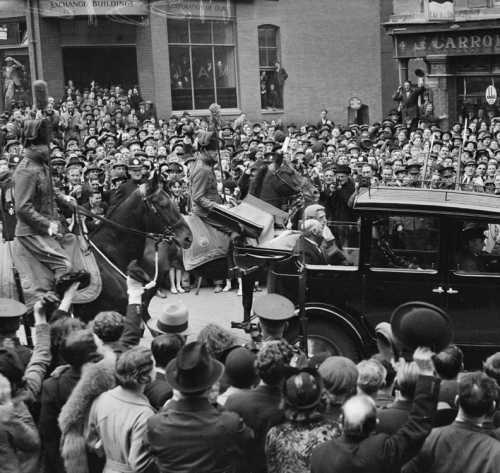Douglas Hyde was born in Frenchpark in County
Roscommon in 1860. His father was a local Church
of Ireland Rector. He quickly became fascinated
with the Irish language and entered Trinity
College where he studied other languages
including French, German, Greek, Latin and
Hebrew. He was determined to prevent the
continuing decline of the native language
however, and in 1893 he founded the Gaelic
League.

The Irish language had been in decline since
the seventeenth century but this decline
accelerated in the years after the famine.
The 'Black Death' of 1845 to 1849 resulted in
over a million deaths from starvation and a
further million people were lost to emigration
in the decade following the famine. The effect
of the famine on the Irish language was
devastating.
The increased awareness in national identity
that culminated in the Easter Rising in 1916 and
the subsequent War of Independence and eventual
declaration of an Irish Republic can be traced
to events in the second half of the nineteenth
century. The formation of the Gaelic League by
Douglas Hyde was crucial in the promotion of the
idea of an independent Irish nation. Many of the
iconic Irish nationalist leaders that were later
to shape the course of Irish history formed their
nationalistic philosophies during their
membership of the Gaelic League. Pearse, deValera
and Collins were all members. Hyde later became
discontent with the increasing political bent that
the League was displaying and resigned the
presidency of the organization he had founded in
1915. He had no political affiliation either with
the Home Rule movement or Sinn Fein.
He accepted a position in Seanad Eireann (the
appointed Senate) but later lost the post when an
election was held. It is believed that the fact
that he was a Protestant counted against him,
although false allegations that he supported
divorce must also have damaged his chances. He
returned to academic studies and became Professor
of Irish at UCD.

Huge Crowds were drawn to the Inauguration of Douglas Hyde
Despite having retired some years earlier Eamon
deValera appointed Douglas Hyde once more to
Seanad Eireann. His stay in the Senate was again
short-lived but this time it was because greater
office beckoned. deValera and the opposition leader
W.T. Cosgrove agreed that Hyde should become the
first President of Ireland. Both of these leaders
wanted to prove that the 'new' Ireland could be
inclusive and the appointment of a Protestant
would certainly demonstrate this. Recognition for
the years of service Hyde had given to the Irish
people through his tenure as president of the
Gaelic League was also a factor. In 1938 he became
the first President of Ireland and settled into
Aras an Uachtarain in the Phoenix Park, which has
remained the home of all Irish Presidents ever
since.
Hyde was a popular President with the US
President Roosevelt calling him 'a fine and
scholarly old gentleman'. He suffered a massive
stroke in 1940 and it appeared his demise was
near. He recovered however and, although
wheelchair bound, continued his presidential
duties for another 5 years.
He left office in 1945 but continued to live in
the Phoenix Park until his death in 1949. He was
granted a state funeral and was buried in his
native Roscommon.
His contribution to the cause of the Irish
language, history, music and literature cannot
be overstated with W.B. Yeats proclaiming him
as the source of the Irish literary renaissance
which continues to this day.



